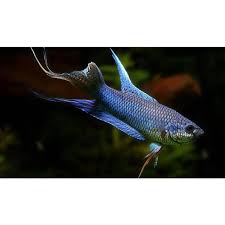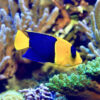Exploring the Connection Between Dragons and Feng Shui Elements in Chinese Homes

Dragons have long been a central figure in Chinese culture, embodying power, wisdom, and protection. Beyond their mythological significance, dragons are integral to Feng Shui, the ancient Chinese art of harmonizing energy within a space. In Feng Shui, dragons are revered as symbols of vitality, success, and prosperity, making them a popular choice for enhancing the energy flow in Chinese homes. Their presence in décor, architecture, and spatial arrangements reflects deep cultural beliefs and centuries-old traditions.
This article explores how dragons are intertwined with Feng Shui principles, delving into their role as guardians, enhancers of energy (qi), and symbols of harmony within the home. By examining their placement, symbolism, and connection to various Feng Shui elements, we gain insight into their enduring relevance in Chinese households.
1. The Symbolism of Dragons in Feng Shui
In Feng Shui, dragons are more than decorative motifs; they are potent symbols that influence the energy dynamics of a space. Known as “lung” (龙) in Mandarin, the dragon represents the active yang energy that balances the passive yin energy, creating harmony.
1.1. The Five Blessings
Dragons in Feng Shui are often associated with the “Five Blessings,” which include longevity, wealth, health, virtue, and natural death. These blessings encapsulate the ideals of a harmonious and prosperous life, making the dragon a cherished symbol in Chinese homes.
1.2. Guardians of Prosperity
As protectors, dragons are believed to ward off negative energy and attract positive energy. They are often depicted holding or surrounding treasures, symbolizing the safeguarding and accumulation of wealth and fortune.
1.3. The Dragon and the Phoenix
The dragon is frequently paired with the phoenix in Feng Shui, representing the ultimate balance of yin and yang. While the dragon symbolizes strength and authority, the phoenix represents grace and renewal. Together, they are believed to bring harmony, marital bliss, and prosperity.
2. Dragons and Feng Shui Elements
Feng Shui revolves around the five elements: Wood, Fire, Earth, Metal, and Water. The dragon, as a dynamic and versatile symbol, is often connected to these elements, amplifying their influence within a home.
2.1. The Wood Element: Growth and Vitality
Dragons are often associated with the Wood element due to their connection with nature and growth. Placing dragon-themed items near plants or in wooden structures enhances the vitality of the home and fosters personal and professional growth.
2.2. The Water Element: Wealth and Flow
In Feng Shui, water represents wealth and abundance, and dragons are frequently depicted interacting with water elements, such as rivers, waterfalls, or clouds. Incorporating dragon designs in fountains or aquariums is believed to amplify financial prosperity and ensure a steady flow of income.
2.3. The Fire Element: Passion and Energy
Dragons exude yang energy, making them a natural match for the Fire element. Placing dragon imagery in areas associated with the Fire element, such as the kitchen or living room, invigorates the space and promotes passion and enthusiasm.
2.4. The Earth Element: Stability and Protection
Dragons carved from stone or jade resonate with the Earth element. These sculptures are often placed near entrances or gardens to provide stability and protection, grounding the energy of the home.
2.5. The Metal Element: Clarity and Focus
Golden or metallic dragon figurines connect with the Metal element, symbolizing precision, clarity, and mental focus. These are ideal for home offices or study areas, enhancing concentration and productivity.
3. Placement of Dragons in Feng Shui
The placement of dragon symbols within a home is crucial in Feng Shui, as improper positioning can disrupt the flow of energy rather than enhance it.
3.1. Main Entrance
Placing a dragon near the main entrance is a common practice, as it is believed to guard the home against negative influences while inviting positive energy. The dragon should face outward to ward off harmful forces and protect the household.
3.2. Living Room
The living room is an ideal space for displaying dragon imagery. Positioned in a high and prominent location, the dragon symbolizes the family’s strength and prosperity. Ensure that the dragon is facing into the room, symbolizing its protection of the inhabitants.
3.3. Bedrooms
While dragons are potent symbols of energy, they are generally not recommended for bedrooms due to their intense yang energy, which can disrupt sleep. However, dragon-and-phoenix motifs may be placed in a marital bedroom to symbolize harmony and balance.
3.4. Workspaces
For those seeking career advancement, placing a dragon figurine on the desk or in the north sector of the home is believed to enhance professional opportunities. Pairing the dragon with water elements in this context amplifies its effects.
4. Dragons in Home Décor
Dragons are incorporated into various aspects of home décor, blending aesthetic appeal with their symbolic significance.
4.1. Wall Art and Paintings
Dragon-themed wall art and paintings are popular choices for adding a touch of grandeur to interiors. These artworks often depict dragons soaring through clouds or encircling pearls, representing ambition and the pursuit of goals.
4.2. Sculptures and Figurines
Dragon sculptures made of materials like jade, bronze, or wood are frequently used as decorative pieces. These figurines not only enhance the visual appeal of a room but also serve as powerful Feng Shui tools.
4.3. Furniture and Accessories
Furniture featuring dragon motifs, such as intricately carved chairs or tables, adds a traditional touch to a home. Accessories like cushions, curtains, and rugs with dragon designs bring subtle yet impactful energy into the space.
5. Dragons in Garden Feng Shui
The principles of Feng Shui extend beyond the interiors of a home, with dragons playing a significant role in garden design.
5.1. Water Features
Incorporating dragon-themed water features, such as fountains or ponds, enhances the flow of wealth and prosperity. These features are often placed in the east or southeast sectors of the garden, aligning with the Wood and Water elements.
5.2. Pathways and Entrances
Dragon sculptures or carvings near garden pathways or entrances create an inviting and protective atmosphere. These elements guide positive energy into the home while keeping negative forces at bay.
5.3. Floral Arrangements
Planting flowers and trees in shapes that mimic a dragon’s winding body symbolizes growth and vitality. These natural elements are believed to harmonize the garden’s energy flow.
6. The Influence of Dragons in Modern Feng Shui
While rooted in ancient traditions, the role of dragons in Feng Shui continues to evolve in modern homes. Today, dragons are featured in contemporary designs, blending traditional symbolism with modern aesthetics.
6.1. Minimalist Designs
Modern interpretations of dragon imagery focus on sleek, minimalist designs, ensuring they blend seamlessly with contemporary interiors. These designs maintain the dragon’s symbolic power while adapting to modern tastes.
6.2. Technology Integration
Innovative technologies have brought dragon imagery into digital and smart home designs. For example, dragon-themed LED art or holographic projections offer a futuristic take on this ancient symbol.
7. Conclusion: Dragons as Guardians of Energy in Chinese Homes
Dragons hold a timeless place in the art of Feng Shui, symbolizing power, prosperity, and harmony. Their presence in Chinese homes, whether through sculptures, paintings, or architecture, serves as a testament to their enduring cultural and spiritual significance. By understanding their symbolic meaning and placement, homeowners can harness the dragon’s energy to create spaces that are not only beautiful but also balanced and harmonious.
From ancient palaces to modern apartments, the dragon remains a guardian and enhancer of energy, bridging the gap between tradition and innovation. As a symbol of strength and protection, the dragon continues to inspire and elevate the practice of Feng Shui in Chinese homes and beyond.

